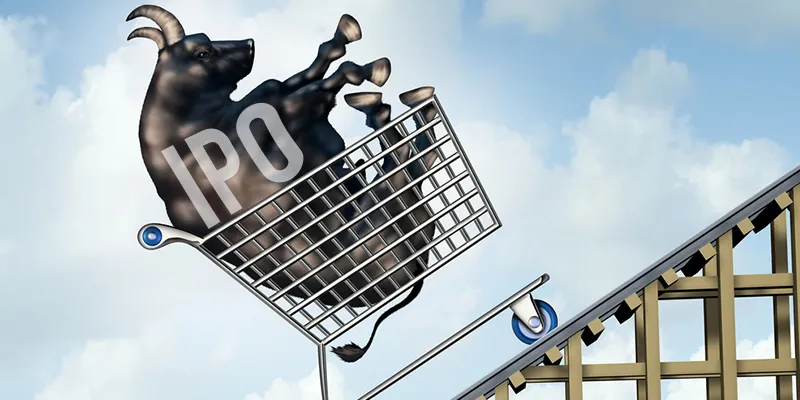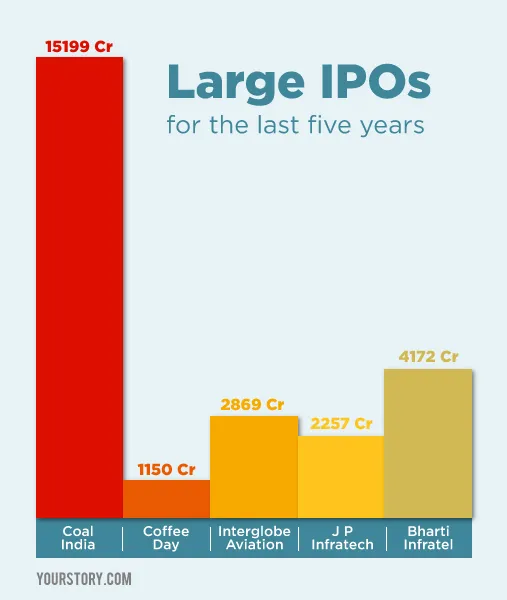Why there won't be a big fat e-commerce IPO in India anytime soon
Young India is excited with the numbers thrown about by news reports on valuations. Some believe that a large company like Flipkart is valued at $15 billion (Rs 1 lakh crore) and everyone expects, if and when they list on the Bombay Stock Exchange (BSE), the Initial Public Offering (IPO) to be the largest in the country, even with a 40 per cent dilution of stake. That would mean that the IPO size would be at least Rs 40,000 crore. This depends, of course, on the price band set by investment bankers. Should this happen, it will be the largest IPO in the country. But one must look at the realities of listing in India and whether these companies are IPO-ready.

The largest IPOs in India have not been from a technology company or an IT Service company. In fact, Infosys itself had to be saved by an underwriter way back in 1993 because the public offering was under-subscribed. Coal India, a public sector unit, raised Rs 15,199 crore in 2010, and this has remained the largest IPO in the country. Over the last five years, the top ten IPOs have been dominated by infrastructure companies (See chart). So do Indian Institutions have the ability to absorb a large tech IPO? The answer is not yet. Chinese marketplace AliBaba’s IPO in the US was worth $25 billion, and India has some way to go to even achieve those numbers.
Let us look at the reasons.
Indian Startups: Baby steps towards listing

“Firstly, the numbers are not very good. The top three e-commerce companies cannot be called startups and are not yet in the black,” says Satish Meena, Forecast Analyst, Market Insights Professionals at Forrester Research.There are optimists who believe that India can have several IPOs and garner respect for the startup community. Gururaj Deshpande, the founder of the Deshpande Foundation, says that innovation will drive companies to become large and then go for an IPO.
Gururaj says,
Indian policymakers have already raised the aspirations of so many young people. You do not need large IPOs to determine a country’s growth. You need several respectable IPOs from the technology, healthcare and education industries. Startups should fuel this.
But then again, while India dabbles with announcement after announcement on startups, we hope that it does not end up a part of a political campaign. Both the ruling party and the opposition should facilitate policies by “proof-of-concepts”, which analysts say is nothing but a way to achieve the desired objective, of making ideas great businesses, through strict scrutiny, rather than being a policy to win votes.
“India can absorb great technology and startup IPOs. But, today, the entire nation is just about beginning to realise its potential; it is only a matter of time before the business fundamental will morph into IPOs,” says Sanchit Vir Gogia, CEO of Greyhound Research.
Related Story: Biggest Tech IPO in History
YourStory Take
Some of us business journalists are by contract not allowed to invest in stocks. But if the public were to bet on a startup IPO, the knowledge level to understand such businesses does not exist beyond a few major metro cities. We too feel that India will disappoint because we do not foresee a large technology IPO for several years to come. But we can expect several smaller IPOs from the technology side by 2018, and the investing public and institutions can then dabble with the fortunes of a startup nation. Perhaps, by then, we shall also witness an Indian startup listing abroad with a decent IPO. It makes sense for the likes of Flipkart and Snapdeal to go list in other countries. But if they have to list in India, then the Indian news reader is in for a long wait.








